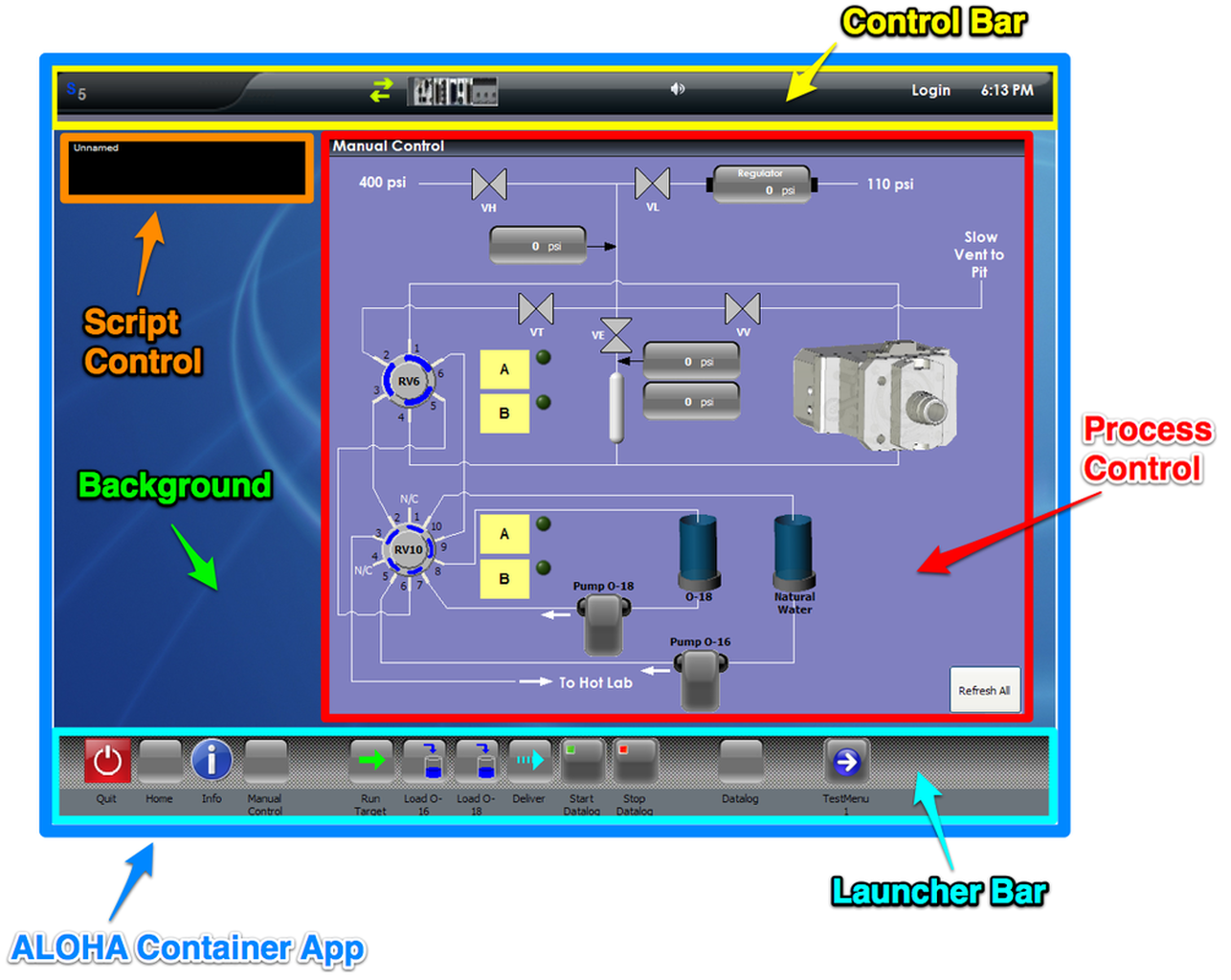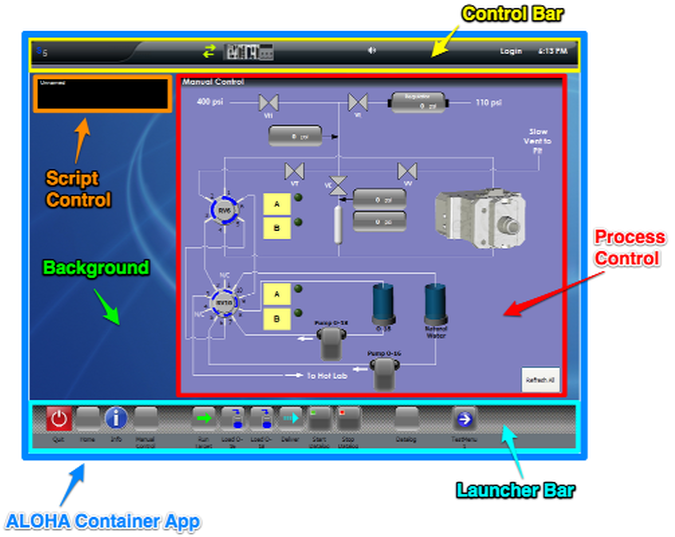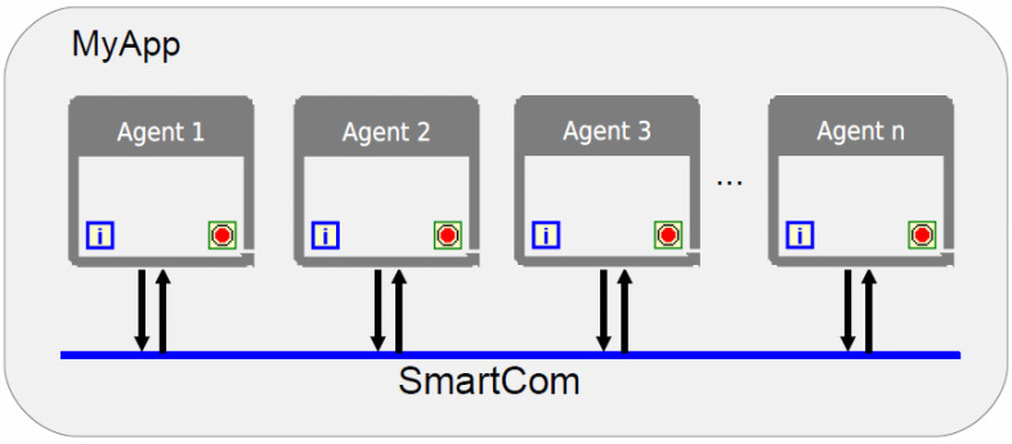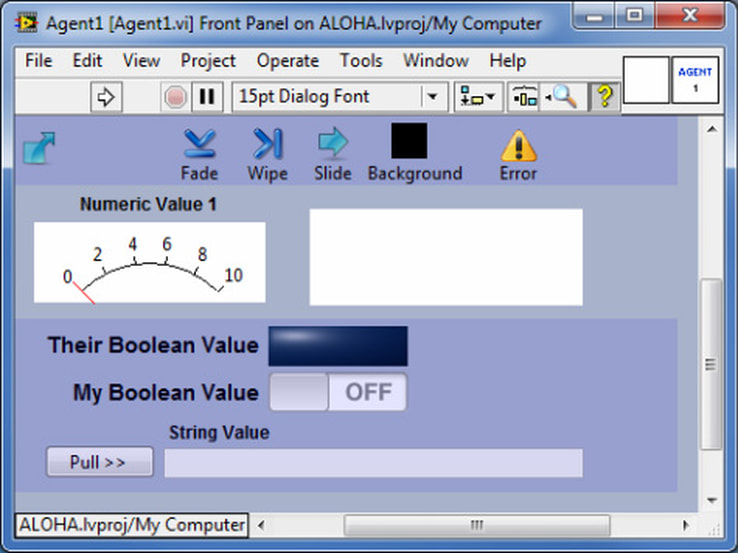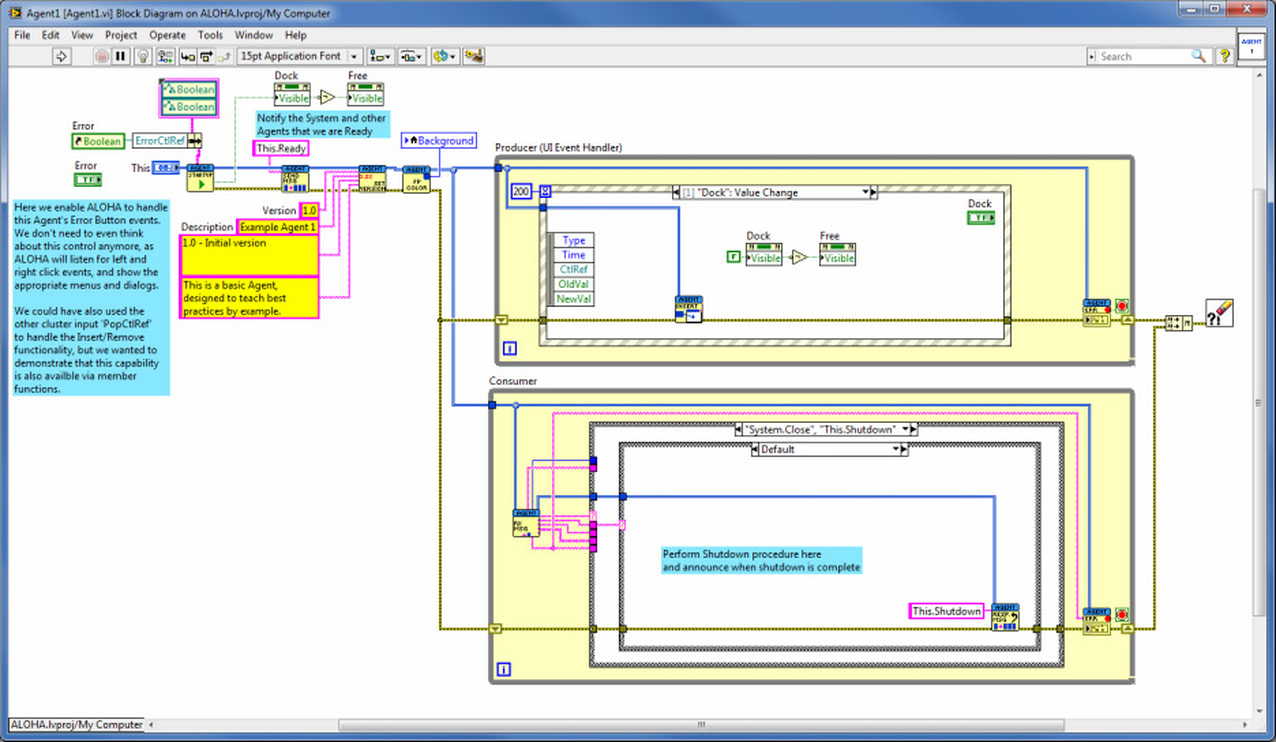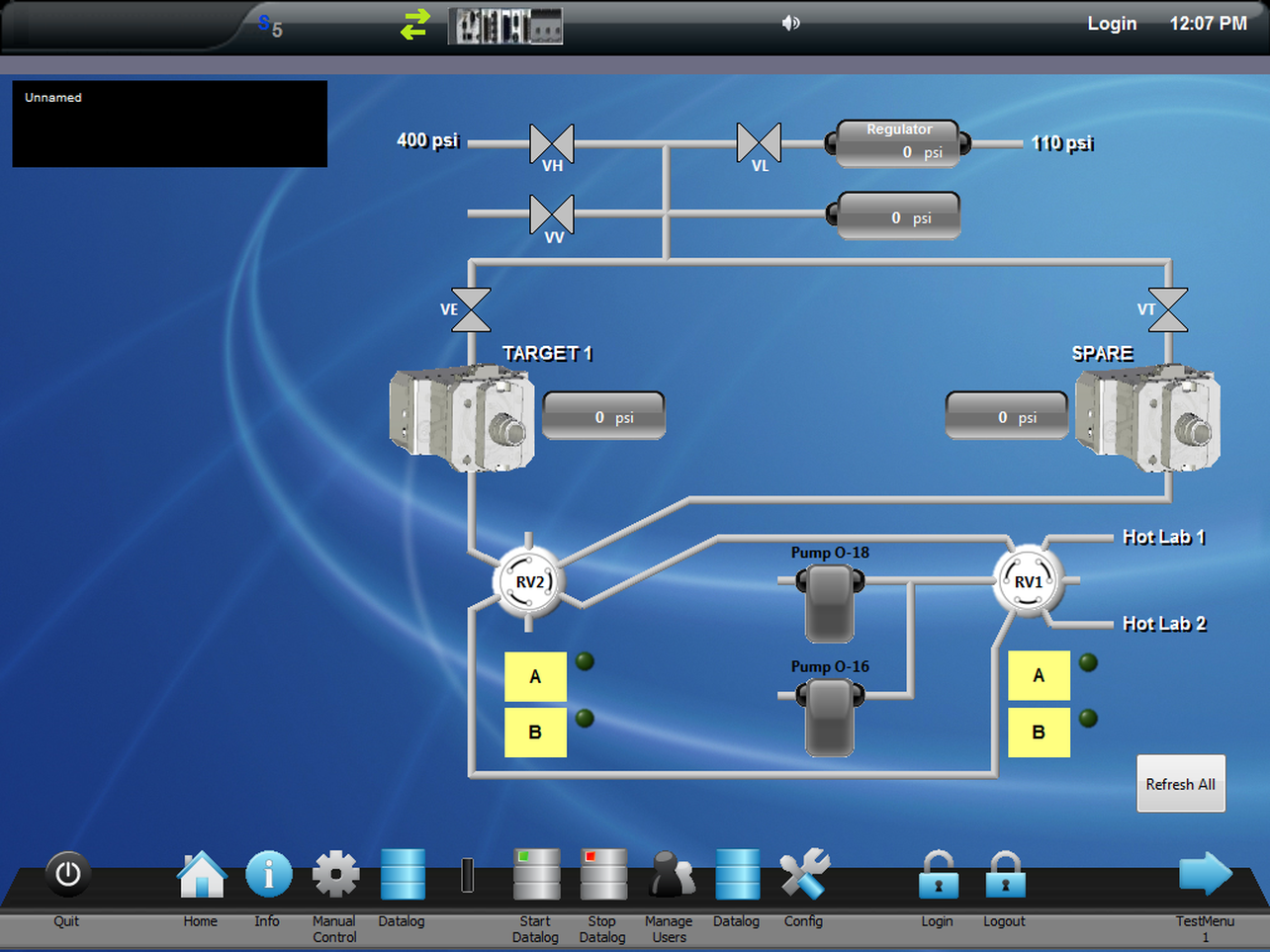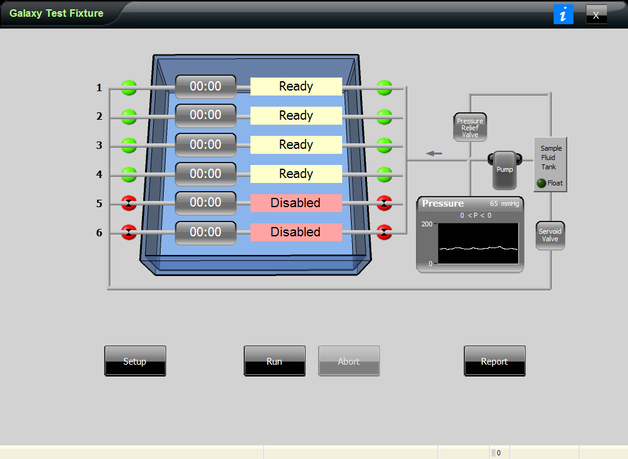ALOHA - A Simple Powerful LabVIEW Framework
What is ALOHA
It is a modular application framework. Small modules come together to build a large application. ALOHA provides the framework for those modules and ties them together.
- Create LabVIEW applications, from simple to complex
- Write small components that work together
- Provides a variety of services and housekeeping tasks
- Create reusable modules
- Simplify team development
- Written in native LabVIEW code
The large scale systems we have developed with ALOHA have come together in a remarkably short time, and have shown excellent stability and scalability. |
Features of ALOHA
- Communication between modules
- Communication between platforms: Windows, RT
- Automatically saves and restores persistent data
- Error handling and logging
- GUI management
- Save/restore window positions
- Combine multiple modules to make a larger composite GUI
- Supports floating and docking windows
- Save/restore window positions
Benefits of ALOHA
- Modular - ALOHA's structure makes it easy for multiple developers to work on parts of the larger application - something usually difficult to do in LabVIEW.
- Reusable - The modular structure makes sharing modules between multiple projects simple.
- KISS - Even beginner programmers can be part of developing a large complex application. Modules are written using the simple Producer/Consumer design pattern.
- Approachable - Any reasonably skilled LabVIEW programmer can write modules for ALOHA. No Certified Architect required to be productive with ALOHA.
- Pre-architected - Fill-in-the-blank approach frees up the programmer to work on solving the specific problem rather than developing an architecture.
Philosophy of ALOHA
|
The design philosophy of ALOHA is to keep it simple. Unlike other frameworks, ALOHA is approachable for intermediate LabVIEW programmers. Internally, the framework uses object-oriented programming techniques. But it wraps that power behind the familiar LabVIEW structures every programmer knows.
|
No architect certification required
|
Technical Details
ALOHA Modular GUI
ALOHA makes it easy to create small modules, called Agents, which work together to make a larger application.
ALOHA Framework Features
|
ALOHA Application Structure
ALOHA uses a very simple structure. A single messaging backplane called SmartCOM provides communication between all the Agents that make up the program. Each Agent is able to talk to all of the other Agents.
ALOHA Example Code
Each Agent is a mini app. The code uses the familiar Producer/Consumer format. With a few simple additions, it becomes a module that plugs into a larger application. This example is code for a simple Agent.
Example ALOHA Screens
These are some screenshots of ALOHA applications. You will notice several GUI elements common to both of these applications. An ALOHA application can look like anything. These look alike because several of the ALOHA Agents were reused. ALOHA makes reuse of code very easy. Entire working Agents can be taken from one application and just dropped into another.
Videos
ALOHA Presentation from the CLA Summit
ALOHA Framework Introduction
Download ALOHA
ALOHA is provided to the LabVIEW community free of charge. It is provided without warranty or support. It is a tool we have used extensively on projects internally with great success. It is an ever-evolving tool. Use it. Enhance it. Stay in touch with us to help build it into a better tool.
Communication
If you have questions, issues, or recommendations, contact us here at S5 Solutions.
[email protected]
[email protected]



